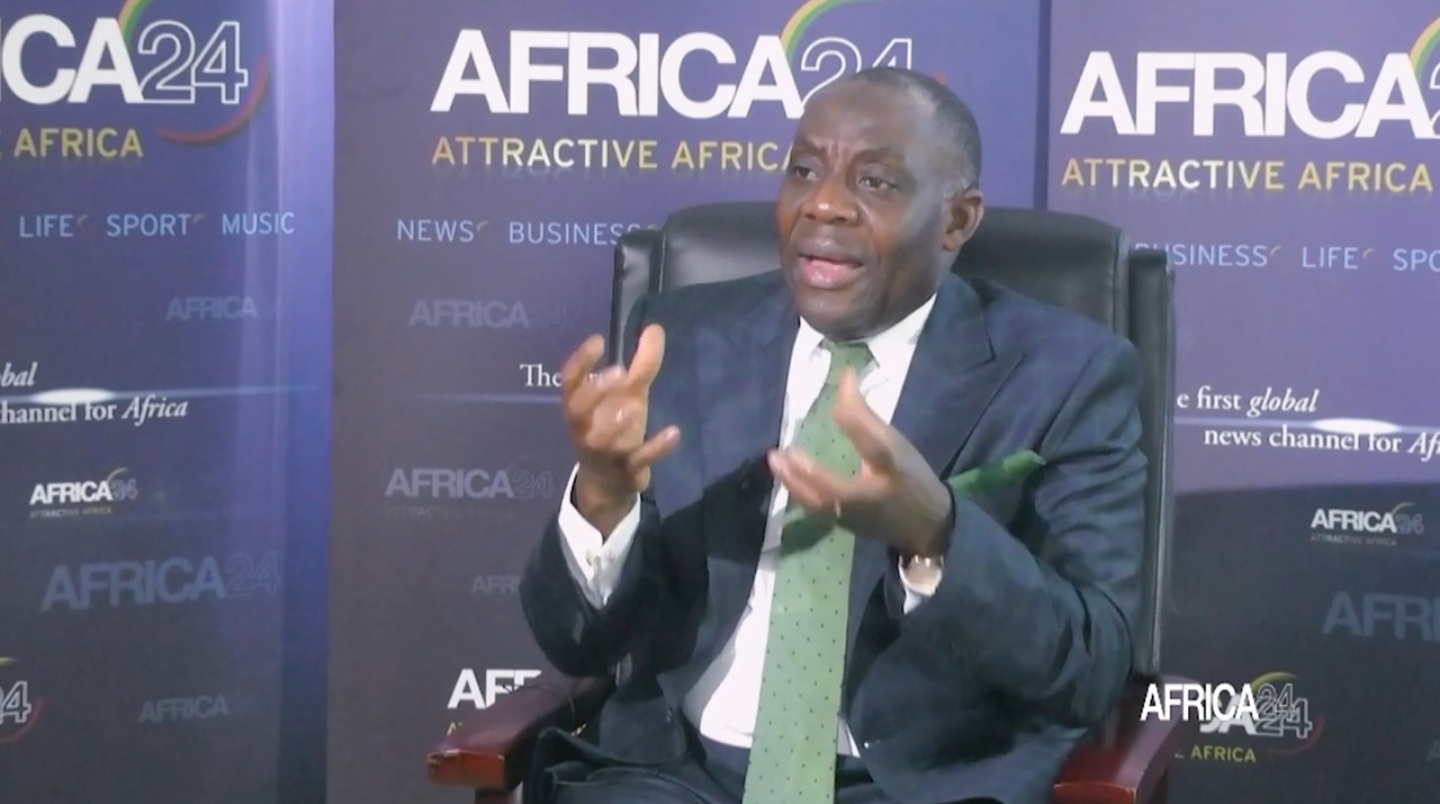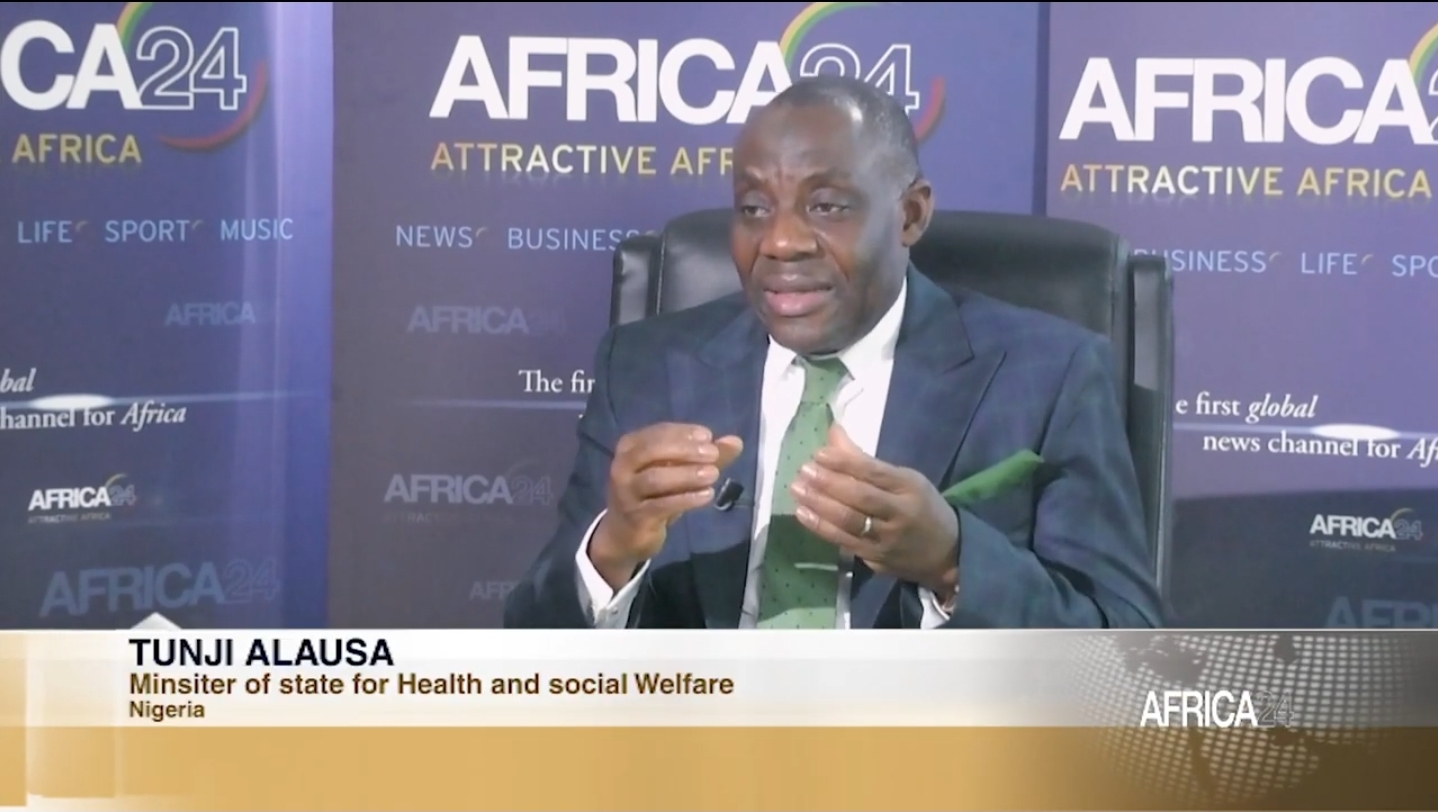Health
INTERVIEW: Tunji Alausa Details Nigeria’s Strategy For Malaria Elimination

-
President Tinubu appointed Dr. Alausa and Prof. Ali Pate to lead the health ministry in July 2023.
-
After both ministers assumed their offices in August 2023, they had the mandate to overhaul Nigeria’s healthcare system.
-
In a recent interview, Dr. Alausa disclosed how the health ministry under both men is fulfilling this mandate.
Eko Hot Blog reports that Nigeria’s Minister of State for Health and Social Welfare, Dr. Tunji Alausa, has detailed the country’s strategy to eliminate malaria.
The minister spoke with Africa 24 TV, one of the foremost Africa-centric TV stations on the continent, in an interview on the sidelines of a Ministerial Conference, co-hosted by the World Health Organization (WHO) and the Government of Cameroon, which held on March 6, 2024, in Yaoundé, Cameroon to address the scourge of malaria.
EDITOR’S PICKS
The conference gathered Ministers of Health, global malaria partners, funding agencies, scientists, civil society organizations and other principal malaria stakeholders to discuss solutions to eliminate malaria deaths.
Notably, Nigeria is one of the 11 hardest hit countries by malaria.
Speaking on the country’s effort to eliminate malaria from its population and boost healthcare outcomes, Dr. Alausa said President Bola Tinubu has provided the Ministry of Health with all the support it needs to fulfill his campaign promises of revitalizing, rejigging, redeveloping, and revamping the healthcare system.
“We are a country of over 220 million people. We’ve had malaria programmes in my country, Nigeria, since 1948, well over 70 years ago now. But Nigeria today still has the highest world burden of malaria,” he said.
“This is not acceptable to us as a government. It is not an enviable place to be. That is why, as a government, we’ve moved quickly to now begin to put programmes in place for us to bend the curve so that we can begin to reduce malaria mortality that shouldn’t be happening among our children and women.
“What have we done? We have a president, President Bola Tinubu, who is totally and passionately committed to improving the Healthcare of every citizen of Nigeria. He made the promises during his campaign of revitalizing, rejigging, redeveloping, and revamping our healthcare system in Nigeria and I’m happy to report to you the president has acted in fulfilling all of these campaign promises.
“He has given us superintending ministers in the Health ministry all the support that we need. The 2024 budget we are implementing today has the highest allocation to healthcare in our country.
“We will use this money to improve our healthcare system, improve our infrastructure, modernize our hospitals with state-of-the-art equipment, and also divert some of this money in our malaria amelioration programme.”

Minister of State for Health and Social Welfare, Dr. Tunji Alausa speaking with Africa 24 TV on Nigeria’s malaria elimination strategy (Photo: Africa 24 TV)
On specific steps taken by the Nigerian government to eradicate malaria, Dr. Alausa revealed that the administration has appointed an adviser and is pulling funds from various sources to raise the capacity of primary healthcare centres.
He further disclosed that funds would be chanelled to national health insurance agencies to widen their coverage to many more Nigerians, while disclosing that Nigeria is set to host an international conference on malaria on May 2, 2024.
“Now, let me talk to you specifically on what we are doing to end malaria. We understand where the problems are and to start with, we’ve appointed a national coordinator that will act as strategic adviser to the federal government of Nigeria in our malaria amelioration programme,” the minister stated.
“In the next few months, specifically on May 2nd, we will host a big international conference which is tagged, “Rethinking malaria elimination in Nigeria”.
“The third thing we are doing is we’ve launched our sector-wide approach which is pulling resources from our development partners together with our own funds in the basic Healthcare provision fund, which is 1% of our consolidatory revenue.
“We would now with our development partners realign and coordinate spending; some of this money would be mobilized towards our primary healthcare centres where they can begin to have more money to improve on their infrastructure, employ new frontline workers, buy more consumables, drugs, so that they can begin to develop better and improve care to our citizens.
“Also, as we continue with our sector-wide programming in which we are coordinating funding and programmes with our development partners, more money will be made available to our national health insurance agencies where we can increase the number of citizens of Nigeria being covered.
“As we do these, we are not only attacking malaria, reducing the burden of this disease, but we are also doing that to improve our entire population’s health outcomes.
“These are some of the things we are doing and going into next year’s supplementary budget, we will ask our legislature which is now very supportive of the healthcare sector, very supportive of what we are doing in improving our healthcare delivery system to substantially increase our allocation to the ministry of health.”
Speaking on the malaria vaccine, which is deemed 30% effective and being tested in some African countries, Dr. Alausa noted that Nigeria is yet to adopt this vaccine.
“It was started by Ghana, Malawi, and one other country. But now, I believe about 15 African countries have rolled it out. As you see, the effectiveness of the malaria vaccine is not 30%; it’s about 60%,” the board-certified Nephrologist noted.
“Now, it offers an additional benefit on the existing strategy to eliminate malaria.”
He stated that existing data suggests that countries that have adopted the vaccine have recorded a success rate of about 80% in malaria elimination.
The minister revealed that Nigeria is also set to roll out the malaria vaccines to children in the “not-too-distant future”.
“The vaccine will be part of our strategy to eliminate malaria from Nigeria,” he added.
FURTHER READING
At the Yaoundé conference, Dr. Alausa, alongside ministers from other vulnerable African countries, signed a declaration committing to end malaria deaths in 2030.
Click here to watch the Dr. Alausa’s full interview with Africa 24 TV
Click here to watch video of the week:
Advertise or Publish a Story on EkoHot Blog:
Kindly contact us at ekohotblog@gmail.com. Breaking stories should be sent to the above email and substantiated with pictorial evidence.
Citizen journalists will receive a token as data incentive.
Call or Whatsapp: 0803 561 7233, 0703 414 5611



















